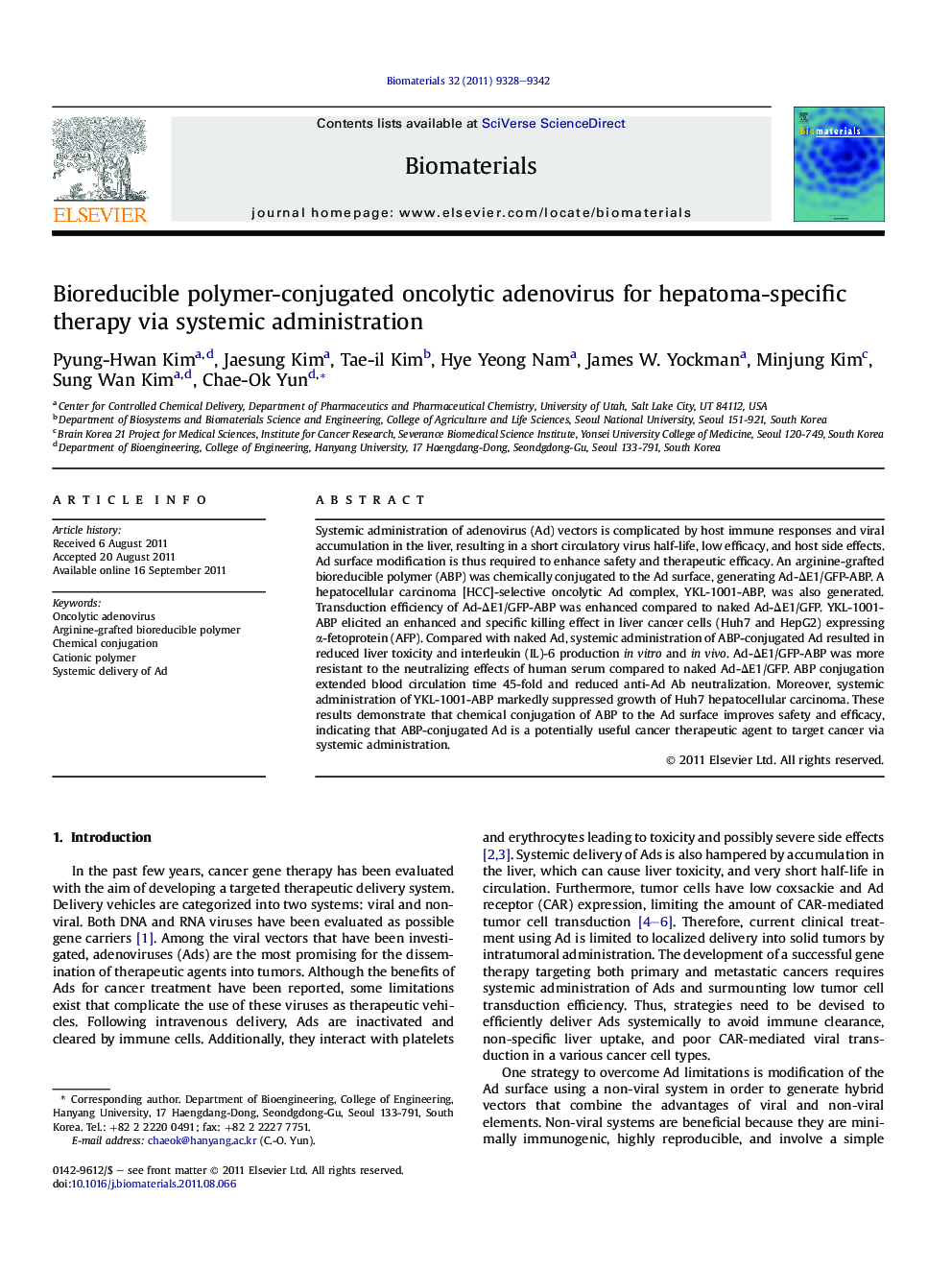| Article ID | Journal | Published Year | Pages | File Type |
|---|---|---|---|---|
| 7886 | Biomaterials | 2011 | 15 Pages |
Systemic administration of adenovirus (Ad) vectors is complicated by host immune responses and viral accumulation in the liver, resulting in a short circulatory virus half-life, low efficacy, and host side effects. Ad surface modification is thus required to enhance safety and therapeutic efficacy. An arginine-grafted bioreducible polymer (ABP) was chemically conjugated to the Ad surface, generating Ad-ΔE1/GFP-ABP. A hepatocellular carcinoma [HCC]-selective oncolytic Ad complex, YKL-1001-ABP, was also generated. Transduction efficiency of Ad-ΔE1/GFP-ABP was enhanced compared to naked Ad-ΔE1/GFP. YKL-1001-ABP elicited an enhanced and specific killing effect in liver cancer cells (Huh7 and HepG2) expressing α-fetoprotein (AFP). Compared with naked Ad, systemic administration of ABP-conjugated Ad resulted in reduced liver toxicity and interleukin (IL)-6 production in vitro and in vivo. Ad-ΔE1/GFP-ABP was more resistant to the neutralizing effects of human serum compared to naked Ad-ΔE1/GFP. ABP conjugation extended blood circulation time 45-fold and reduced anti-Ad Ab neutralization. Moreover, systemic administration of YKL-1001-ABP markedly suppressed growth of Huh7 hepatocellular carcinoma. These results demonstrate that chemical conjugation of ABP to the Ad surface improves safety and efficacy, indicating that ABP-conjugated Ad is a potentially useful cancer therapeutic agent to target cancer via systemic administration.
